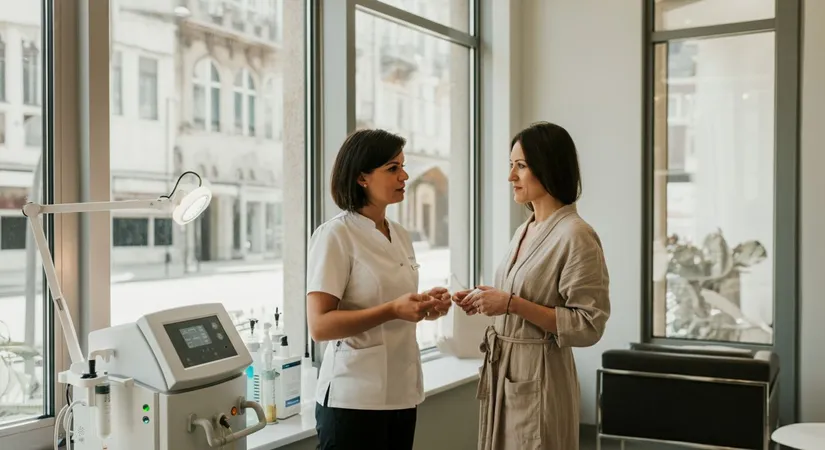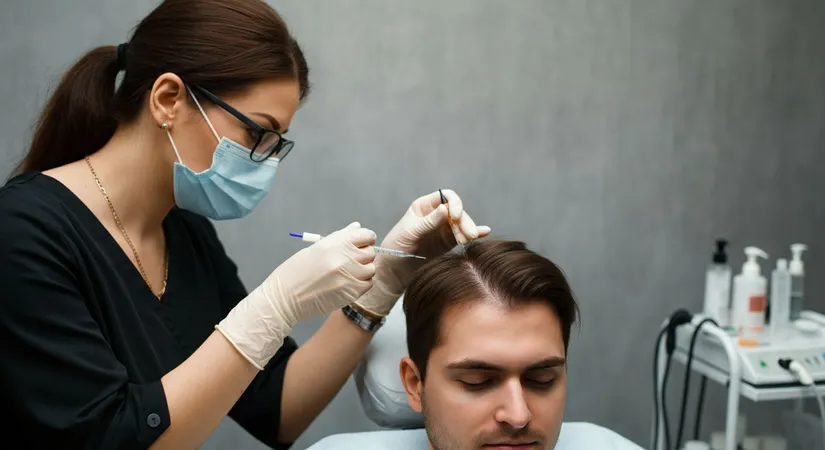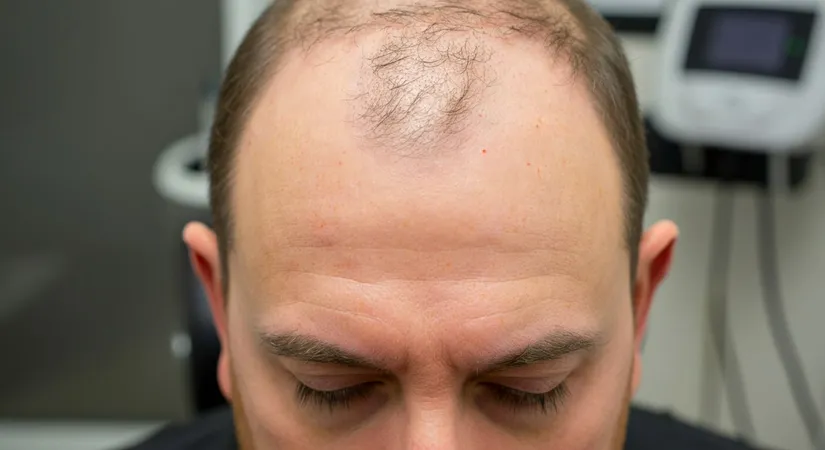Discover the Power of PRP Hair Treatment
Unlock the secret to lush hair with PRP treatment. Dive into our comprehensive guide and embrace the change.
PRP (Platelet-Rich Plasma) hair treatment stands as a groundbreaking solution for those grappling with hair loss. By harnessing the body’s natural healing powers, PRP therapy promises to rejuvenate hair follicles, promoting thicker, healthier hair. The methodology involves extracting a patient’s blood, processing it to concentrate platelets, and then injecting this enriched plasma back into the scalp. This innovative approach not only boosts hair regrowth but also revives your confidence. In this post, we will delve into the nuances of PRP hair treatment, exploring how it works, potential side effects, and tips for selecting the best clinic.
Understanding PRP Therapy for Hair Loss
Exploring the Mechanism of PRP Hair Treatment
PRP hair treatment, a non-surgical hair restoration method, utilizes platelet-rich plasma to enhance hair follicle vitality. This therapy involves extracting a small amount of the patient's blood, processing it to concentrate the platelets, and injecting the plasma into the scalp. These platelets release growth factors that stimulate hair regrowth and improve hair density. For example, a study showed a significant increase in hair count and thickness after PRP sessions, highlighting its potential effectiveness.
Key Benefits of PRP Hair Treatment
- Promotes natural hair regrowth by enhancing follicle health.
- Minimally invasive with no downtime, making it convenient for patients.
- Utilizes the body's own healing mechanisms, reducing the risk of adverse reactions.
These benefits make PRP therapy a popular choice for those seeking a natural approach to combat hair loss.
Steps in the PRP Hair Treatment Process
- Blood is drawn from the patient and placed in a centrifuge.
- The centrifuge separates the platelet-rich plasma from other blood components.
- The concentrated plasma is injected into the scalp, targeting areas of hair thinning.
This systematic approach ensures that the growth factors are delivered precisely where needed, maximizing the treatment's effectiveness.

How Does PRP Hair Treatment Work?
Understanding the PRP Hair Treatment Process
PRP hair treatment is a sophisticated process that begins with a simple blood draw from the patient. This blood is then placed in a centrifuge, a machine that spins at high speed to separate the blood components. The goal is to isolate the platelet-rich plasma, which is rich in growth factors essential for hair follicle rejuvenation.
Detailed Steps of PRP Hair Treatment
- The patient's blood is drawn and placed in a centrifuge.
- The centrifuge spins the blood to separate the platelet-rich plasma.
- The concentrated plasma is carefully injected into the scalp.
This precise method ensures that the growth factors are delivered directly to the hair follicles, enhancing their function and promoting hair regrowth.
Key Features of PRP Hair Treatment
- Utilizes the body's natural healing processes to stimulate hair growth.
- Targets specific areas of hair thinning for effective results.
- Non-surgical and minimally invasive, with a quick recovery time.
These features make PRP hair treatment a compelling option for those seeking to improve hair density and health without surgery.

Exploring PRP Hair Treatment Side Effects
Common Side Effects of PRP Hair Treatment
While PRP hair treatment is generally considered safe, some individuals may experience mild side effects. These typically include scalp tenderness, slight swelling, and temporary inflammation at the injection sites. For instance, a patient might notice redness or a tingling sensation shortly after the procedure, which usually subsides within a few hours. Understanding these potential reactions helps patients prepare for the recovery process.
Managing PRP Hair Treatment Side Effects
- Apply a cold compress to reduce swelling and discomfort.
- Avoid washing the hair for at least 24 hours post-treatment.
- Consult with a healthcare provider if unusual symptoms persist.
These strategies can help alleviate common side effects, ensuring a smoother recovery experience.
Potential Risks and Precautions
- Ensure the procedure is performed by a qualified professional.
- Discuss any allergies or medical conditions with the practitioner beforehand.
- Follow post-treatment care instructions carefully to minimize risks.
By taking these precautions, patients can significantly reduce the likelihood of adverse effects and enhance the overall success of their PRP hair restoration journey.

Finding the Best PRP Hair Treatment Clinic
Evaluating Professional Experience and Expertise
When selecting a clinic for PRP hair treatment, it's crucial to assess the professional experience of the practitioners. Clinics with seasoned professionals often have a deeper understanding of the nuances involved in PRP therapy for hair loss. For instance, a clinic with a decade of experience in non-surgical hair restoration is likely to have refined their techniques, ensuring optimal results. Additionally, experienced practitioners are adept at customizing treatments to suit individual needs, enhancing the effectiveness of PRP hair restoration.
Importance of Patient Reviews and Feedback
- Patient reviews provide insights into the clinic's service quality and treatment outcomes.
- Positive feedback often indicates a clinic's reliability and patient satisfaction.
- Consistent negative reviews may highlight potential issues to consider.
By examining patient reviews, prospective clients can gauge the clinic's reputation and the effectiveness of their PRP hair treatment services.
Ensuring Clinic Certification and Standards
- Verify that the clinic is certified by relevant health authorities.
- Ensure practitioners have the necessary qualifications and training.
- Check that the clinic adheres to safety and hygiene standards.
Certification ensures that the clinic meets industry standards, providing assurance of safe and effective PRP therapy for hair loss.
Comparative Analysis: PRP vs. Traditional Methods
Minimal Invasiveness of PRP Hair Treatment
PRP hair treatment stands out for its minimal invasiveness compared to traditional hair restoration techniques. Unlike surgical methods such as hair transplants, which require incisions and recovery time, PRP therapy involves simple injections of platelet-rich plasma into the scalp. This approach significantly reduces the risk of complications and downtime, making it an attractive option for individuals seeking a less intrusive solution to hair loss.
Natural Approach of PRP Hair Restoration
- Utilizes the body's own platelets to stimulate hair growth, ensuring a natural process.
- Avoids synthetic chemicals or foreign substances, reducing potential allergic reactions.
- Encourages gradual hair regrowth, aligning with the body's natural healing rhythms.
This natural methodology appeals to those who prefer treatments that work harmoniously with their body's biology, enhancing the overall appeal of PRP therapy for hair loss.
Comparing PRP with Traditional Hair Restoration Techniques
- PRP involves blood extraction and plasma injection, while traditional methods may require surgical grafting.
- Recovery from PRP is swift, often allowing patients to resume activities immediately.
- Traditional methods can offer immediate results, but PRP provides gradual, natural-looking improvements.
These distinctions highlight the unique advantages of PRP hair restoration, particularly for those prioritizing a less invasive and more natural approach to combating hair loss.
Emotional and Lifestyle Impact of PRP Hair Treatment
Boosting Self-Esteem Through Hair Restoration
PRP hair treatment not only addresses physical aspects of hair loss but also significantly enhances psychological well-being. Restored hair health often leads to improved self-esteem, as individuals feel more confident in their appearance. For example, a person who previously avoided social gatherings due to hair thinning might find themselves more eager to engage in social activities post-treatment. This newfound confidence can positively impact personal and professional relationships, leading to a more fulfilling lifestyle.
Social and Lifestyle Benefits of PRP Hair Restoration
- Increased social interactions due to enhanced self-image.
- Greater willingness to participate in activities previously avoided.
- Improved mood and mental health from feeling more self-assured.
These benefits highlight the broader lifestyle improvements that can accompany successful PRP hair restoration, making it a compelling choice for those seeking holistic enhancement.
Steps to Embrace a New Lifestyle Post-PRP Treatment
- Embrace new social opportunities with confidence.
- Engage in activities that were previously avoided due to self-consciousness.
- Maintain a positive mindset to reinforce the psychological benefits of hair restoration.
By actively participating in these steps, individuals can fully leverage the emotional and lifestyle benefits of PRP hair treatment, leading to a more enriched and satisfying life experience.
Innovative PRP Hair Treatment Techniques
Excellence in PRP Hair Treatment Process
Frequently Asked Questions
What is PRP hair treatment and how does it work?
What are the potential side effects of PRP hair treatment?
How does PRP hair treatment compare to traditional hair restoration methods?
What should I consider when choosing the best PRP hair treatment clinic?
What are the emotional and lifestyle benefits of PRP hair restoration?
Discover the path to 'Healthy Beauty' with estethica's expert team. Call now for your free consultation and take the first step towards a more confident you!
📞 Call for Your Free Consultation